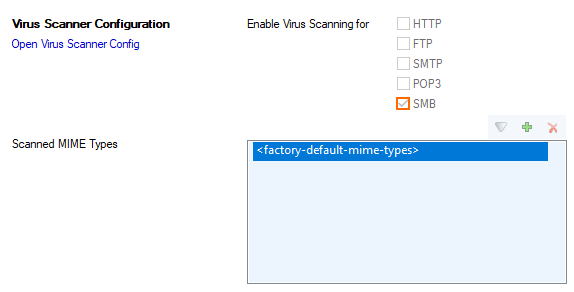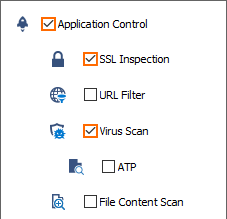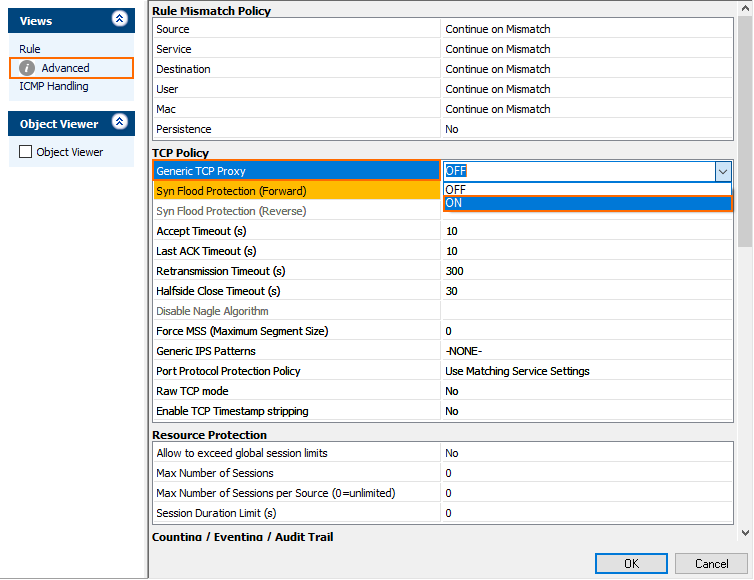Virus scanning covers V2 and V3 for SMB. While a scan is running, data transfer on the session is stopped completely. If malware is found, the whole TCP session is terminated. Content Detection is performed on all files.
Step 1. Configure the Virus Scanner Engine(s)
Select and configure a virus scanner engine. You can use Avira and ClamAV either separately or together. Barracuda CloudGen Firewall F100 and F101 can use only the Avira virus scanning engine.
- Go to CONFIGURATION > Configuration Tree > Box > Assigned Services > Virus-Scanner > Virus Scanner Settings.
- Click Lock.
- Enable the virus scanner engines of your choice:
- Enable the Avira AV engine by selecting Yes from the Enable Avira Engine list.
- Enable the ClamAV engine by selecting Yes from the Enable ClamAV list.
- Click Send Changes and Activate.
Step 2. Enable the Virus Scanner to Scan SMB Related Traffic
- Go to CONFIGURATION > Configuration Tree > Box > Assigned Services > Firewall > Security Policy.
- Click Lock.
- Scroll down to the section Virus Scanner Configuration.
- Select the check box for SMB.
- Click Send Changes.
- Click Activate.

Step 3. Edit an Access Rule to Enable Virus Scanning for Session-Related SMB Traffic
Virus scanning can be enabled for all Pass and Dst NAT access rules.
- Go to CONFIGURATION > Configuration Tree > Box > Assigned Services > Firewall > Forwarding Rules.
- Click Lock.
- Double-click to edit the PASS or Dst NAT access rule.
- Click Application Policy link and select:
- Application Control – required.
- TLS Inspection – optional.
- Virus Scan – required.

- If configured, select a policy from the TLS Inspection Policy drop-down list. For more information, see TLS Inspection in the Firewall.
- In the left menu inside of the Edit Rule window, click Advanced.
- Navigate to the first entry Generic TCP Proxy in the TCP Policy section.
- For the Generic TCP Proxy entry, click in the second column and select ON.

- Click OK.
- Click Send Changes and Activate.
